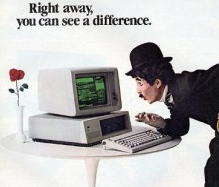Google Becomes The 34,685th Company To Try And Turn The Web Into TV

Today Google announced its plan to worm its way inside the living rooms of Americans, which will be known as, sigh, Google TV. (It’s like WebTV, but branded!) The Google guys claim that their innovation will marry the power of the Internet and the high-resolution screens of America’s televisions, with a Google-developed search engine that will cross the boundaries of live TV, recorded TV, and online TV and an Intel-manufactured chip that will go into TVs produced by the likes of Sony. At this afternoon’s big splashy launch event, the word “seamless” was apparently used a lot. (So was the term “open source,” which will surely butter up the geekoisie.) But those proclamations of seamlessness didn’t stop some seemingly important connectivity issues from cropping up!
Not only was there a bit of video lag when the demo-ers tried to pull up NBA highlights, the wireless keyboard that the Google TV people were using during the demo apparently went, pardon the pun, haywire. Perhaps because of all the in-room cellphone action?
More demo problems — not an auspicious beginning for Google TV. There appear to be issues with the remote. Meanwhile we are seeing a news report from MSNBC on “Nicolas Cage’s animal sex diet.”
Lots of apologies from Mr. Chandra and a request for everyone to turn off their cellphones, which seem to be interrupting the connection between the remote and the TV. Time for Plan B?
The idea would seem to be that one wouldn’t need to use their cell phone to Tweet and update their Facebook status with running commentary on whatever was on TV at a given moment — that the integration of everything within the screen would take care of that (and, one presumes, chop the screen up into tiny bits). So the user at home could turn off their cell phone and surrender to the keyboard? That, of course, assumes that said user is actually going to want to have one burning up their laps while trying to lounge on the couch.
More:
It’s also interesting that the big problem with this demo stems from the fact that Google is trying to use a wireless keyboard to control the television, and it keeps going on the blink. Of course, almost no one uses a keyboard to control their televisions, and surfing the Web with a regular remote control will be tough. (Google says its partners are working on new kinds of remotes.)
There was also discussion of how WebTV was “ahead of its time,” which is funny to me because I feel like all the attempts at turning the Internet into TV are actually an effort to bring things back — back to an era where content consumption was top-down, where choices were more limited, where audiences were more passive, where executives understood underlying economic models in such a way that they weren’t inspired to flail around. And having a tiny Twitter window in the corner of American Idol is not really going to change my perception that any attempt at bringing the Internet and TV into a single entity is a logistical nightmare that invites itself to bad user experiences all around. (Check out Verizon FiOS’ attempt to integrate Twitter into its offerings, which makes posting a Tweet into an arduous process that can only be described by 140 characters of expletive-replacements. Brad Stone also brings up the general clunkiness of the interfaces shown off in the demo — and he and I are pretty experienced Internet users.)
Also? There was no talk of how much this brave interconnected world would cost your average everyday consumer. Which I’m going to take as a sign that it’ll be “too much.”
